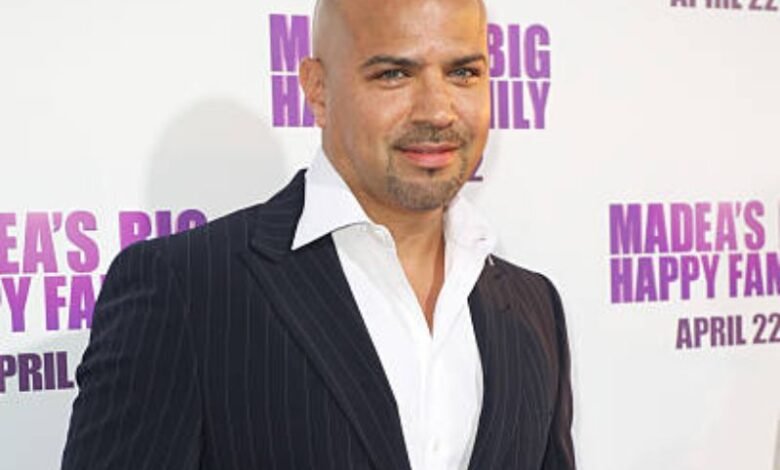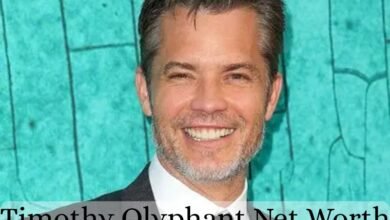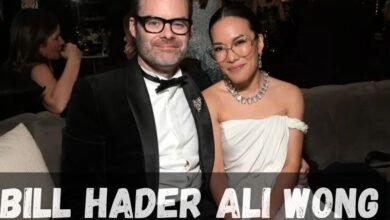
Philip Jonathan Perry stands as one of the most influential yet understated figures in American law and public policy. His career has spanned decades of public service, private practice, and behind-the-scenes policymaking at the highest levels of government. Known for his sharp intellect and ability to navigate the complex intersection of law, governance, and politics, Perry’s work has left an indelible mark on federal operations — particularly in the areas of homeland security, regulatory policy, and administrative law.
While many recognize him as the husband of former congresswoman Liz Cheney and son-in-law of former Vice President Dick Cheney, Philip Perry’s personal achievements and contributions stand entirely on their own. His journey from a literature student to one of Washington, D.C.’s most respected attorneys is a story of intellect, discipline, and quiet influence.
Early Life and Education
Born on October 16, 1964, in San Diego County, California, Philip Perry grew up in Orinda, a suburban community in the San Francisco Bay Area. His early life was marked by curiosity and diligence — traits that would define his future pursuits in law and governance.
Perry attended Miramonte High School, where he developed a strong interest in writing, analysis, and debate. Upon graduating in 1982, he went on to attend Colorado College, earning a Bachelor of Arts in English in 1986. His foundation in literature gave him an exceptional command of language and argumentation, skills that would later make him a formidable legal advocate.
He pursued his Juris Doctor (J.D.) at Cornell Law School, graduating in 1990. At Cornell, he sharpened his understanding of constitutional interpretation, regulatory frameworks, and administrative law — all of which became focal points in his later career.
Early Career in Law and Public Policy
After law school, Perry began his career in private practice, quickly distinguishing himself for his analytical rigor and his ability to handle complex legal issues. However, it was not long before he transitioned into public service, where he could combine his legal expertise with a deep interest in policy and governance.
In 1997, Perry joined the U.S. Senate’s Special Investigation Committee as Counsel, assisting with inquiries into campaign finance issues related to the 1996 presidential election. His balanced, evidence-driven approach during politically charged proceedings established him as a steady and trusted legal mind. This early exposure to high-stakes political investigations cemented his reputation as both principled and pragmatic.
Career in the Department of Justice
Perry’s most formative early role came at the U.S. Department of Justice (DOJ), where he rose to serve as Acting Associate Attorney General — the third-highest-ranking position within the department. In this capacity, he oversaw multiple divisions, including:
- The Civil Division, responsible for defending the United States in civil litigation.
- The Civil Rights Division, which ensures enforcement of federal anti-discrimination laws.
- The Environment and Natural Resources Division, which manages legal matters involving environmental policy and federal land.
His DOJ service gave him a comprehensive understanding of how law and policy interact within the machinery of federal governance. Perry earned a reputation for integrity and intellectual clarity, often called upon to advise on constitutional and administrative disputes.
Leadership at the Office of Management and Budget
In 2002, Perry became General Counsel of the Office of Management and Budget (OMB) within the Executive Office of the President. The OMB plays a central role in shaping federal policy, as it reviews agency budgets, regulatory proposals, and legislative impacts before they reach the President’s desk.
At the OMB, Perry’s responsibilities were both legal and strategic. He provided counsel on matters of administrative law, inter-agency coordination, and executive authority. He helped guide executive decisions through a web of legal constraints while ensuring that regulatory and fiscal actions adhered to constitutional standards.
This period solidified his reputation as one of Washington’s most capable and trusted government attorneys — someone who could interpret the law not merely as a set of restrictions, but as a tool for effective governance.
General Counsel of the Department of Homeland Security
In 2005, President George W. Bush nominated Philip Perry to serve as General Counsel of the Department of Homeland Security (DHS), an appointment unanimously confirmed by the U.S. Senate.
At DHS, Perry oversaw a network of more than 1,500 attorneys across its various components, including:
- The Transportation Security Administration (TSA)
- U.S. Customs and Border Protection (CBP)
- U.S. Immigration and Customs Enforcement (ICE)
- The Federal Emergency Management Agency (FEMA)
- The U.S. Coast Guard
Defining the Legal Foundation of DHS
During Perry’s tenure, the DHS was still in its formative years, having been created in 2003 in response to the 9/11 terrorist attacks. Perry played a central role in building its legal and operational frameworks. His leadership shaped key areas such as:
- National security law and border regulation
- Emergency preparedness and response coordination
- Critical infrastructure protection
- Immigration enforcement policy
He was instrumental in harmonizing security imperatives with constitutional safeguards, ensuring that the department’s policies respected both national defense needs and civil liberties.
Return to Private Practice: Latham & Watkins LLP
After leaving DHS, Philip Perry joined Latham & Watkins LLP, a global law firm headquartered in Los Angeles with a major presence in Washington, D.C. There, he became a partner specializing in complex litigation, appellate practice, and regulatory law.
Practice Areas
Perry’s practice focuses on:
- Federal regulatory litigation — representing clients in disputes with government agencies.
- Constitutional and administrative law — addressing separation-of-powers and due-process issues.
- Homeland security and defense contracting — advising companies in sensitive sectors on compliance and risk management.
- Environmental and biotechnology regulation — navigating complex frameworks governed by the EPA and FDA.
Reputation in the Legal Community
He has been recognized by numerous professional organizations and publications for his litigation skill and legal foresight. The National Law Journal named him a “Litigation Trailblazer,” and peers frequently cite his ability to balance technical precision with strategic insight.
Perry’s clients often describe him as a “lawyer’s lawyer” — a professional whose advice is as valuable for its clarity as it is for its accuracy.
Personal Life and Family
Philip Perry married Elizabeth “Liz” Cheney in 1993. Liz Cheney, herself an attorney and former senior State Department official, later served as a U.S. Representative from Wyoming and became one of the most prominent figures in contemporary American politics.
Together, they have five children, born between 1994 and 2006, and have balanced family life between Virginia and Wyoming. Despite the political visibility of his wife and in-laws, Perry has maintained a notably private and reserved personal profile. Friends and colleagues describe him as thoughtful, analytical, and steadfastly devoted to both his family and his work.
Personal Philosophy
Perry’s professional demeanor reflects a deep belief in law as both a discipline and a duty. He emphasizes accuracy over ambition and has consistently preferred substance to spectacle. Whether in public service or private practice, his focus has remained on ensuring that legal systems function with integrity, coherence, and fairness.
Impact and Legacy
Philip Perry’s legacy extends across both the public and private sectors. As a government official, he contributed to building the regulatory and operational architecture of post-9/11 homeland security. As a private lawyer, he has shaped high-stakes litigation that defines how federal agencies regulate the economy and protect national interests.
Influence on Modern Governance
Few attorneys have had such a sustained influence on the structure of federal authority. His work bridged constitutional law, executive policy, and administrative oversight — areas that are often siloed in legal practice. Perry’s ability to integrate them into cohesive frameworks has made him a model for modern legal governance.
Public Perception
While Perry himself avoids public attention, his professional record speaks volumes. Colleagues in both political parties regard him as pragmatic and fair-minded, focused more on problem-solving than ideology. His discreet but effective approach to leadership underscores a style of public service often missing in the modern political landscape.
Philip Perry — Timeline of Major Life Events
| Year | Event |
|---|---|
| 1964 | Born in San Diego County, California |
| 1982 | Graduated from Miramonte High School |
| 1986 | Received B.A. in English from Colorado College |
| 1990 | Earned J.D. from Cornell Law School |
| 1997–1998 | Served as Counsel to U.S. Senate Investigation Committee |
| Early 2000s | Served as Acting Associate Attorney General, DOJ |
| 2002 | Appointed General Counsel, Office of Management and Budget |
| 2005 | Appointed General Counsel, Department of Homeland Security |
| 2008–Present | Partner at Latham & Watkins LLP |
| 1993–Present | Married to Liz Cheney |
Areas of Expertise and Influence
| Domain | Contributions / Expertise |
|---|---|
| Homeland Security Law | Helped shape DHS’s early legal framework |
| Administrative Law | Expert in federal regulatory processes |
| Litigation & Appellate Practice | High-level representation in federal cases |
| Environmental & Biotech Law | Advises corporations on compliance with federal agencies |
| Government Policy & Regulation | Advised the White House and federal agencies on complex policy initiatives |
Character and Professional Ethos
Those who have worked with Philip Perry consistently describe him as a man of extraordinary patience and moral steadiness. He is not known for fiery rhetoric or public confrontation; instead, he brings quiet authority and a disciplined sense of order to every issue he tackles.
He embodies the qualities of the archetypal “Washington technocrat” — one who moves seamlessly between the corridors of law and governance, ensuring that policies are legally sound and ethically grounded. Perry’s long-standing respect across party lines is a testament to his evenhandedness and professionalism.
Conclusion
Philip Perry’s career offers a window into how modern governance actually works — not through loud debate or public spectacle, but through meticulous legal reasoning, administrative discipline, and respect for the rule of law. His contributions to the Department of Justice, the Office of Management and Budget, and the Department of Homeland Security reflect decades of service that quietly shaped America’s post-9/11 legal and policy infrastructure.
In private practice, he continues to advise clients at the intersection of law, regulation, and national security. Despite his family’s public prominence, Perry remains grounded in his own principles: clarity, fairness, and dedication to lawful governance.
His story is not one of fame, but of influence — the kind of influence that defines institutions and endures long after political headlines fade.
Frequently Asked Questions (FAQs)
Who is Philip Perry?
Philip Perry is an American attorney, former federal official, and partner at Latham & Watkins LLP. He previously served as General Counsel for both the Office of Management and Budget and the Department of Homeland Security under President George W. Bush.
What is Philip Perry known for?
He is best known for shaping the legal and regulatory foundations of the Department of Homeland Security, as well as his high-level litigation work in administrative and constitutional law.
Who is Philip Perry married to?
He is married to Liz Cheney, a former U.S. Representative from Wyoming and daughter of former Vice President Dick Cheney.
What are Philip Perry’s main areas of expertise?
His expertise includes homeland security law, federal regulation, administrative law, biotechnology regulation, and constitutional litigation.
Why is Philip Perry influential in U.S. government and law?
His behind-the-scenes influence in crafting and defending federal policy frameworks — especially post-9/11 — has had lasting effects on how the United States governs issues of security, regulation, and executive power.



